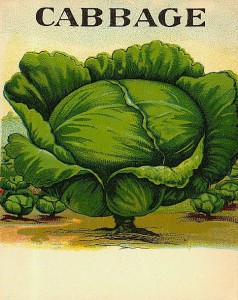 Here’s another extract from T.Earle Welby’s The Dinner Knell of 1932. This time the epicure voices an opinion which in the seventies era of the Almighty Keg would not have been accurate but which, thanks to the influence of CAMRA and other campaigning groups, may possibly ring true today.
Here’s another extract from T.Earle Welby’s The Dinner Knell of 1932. This time the epicure voices an opinion which in the seventies era of the Almighty Keg would not have been accurate but which, thanks to the influence of CAMRA and other campaigning groups, may possibly ring true today.
‘Beer abides and the best of it now is as good as English beer ever was. This is not a fashionable thing to say. For years the air has been full of the moanings of those who imagine a golden age for beer, and suppose it to have been destroyed by the wickedness of the great breweries. The truth of the matter is that, until the nineteenth century was pretty well advanced, most small brewers and vendors, secure in local monopoly, adopted the most vicious methods with beer.
As late as 1824, the author of The Private Brewery wrote: ‘It has seldom been my fortune in a great number of years to taste unadulterated purchased ale, whether brewed in the metropolis or in the brewing districts of the country’. For years before that date and for some years later an extremely harmful and highly intoxicating drug, the Indian berry ( coccollus Indicus) was freely used in beer ; and willow bark, walnut leaf, quassia, gentian, aloes, entered into the production of what was sold in hundreds of establishments and more particularly in the abominable beer-houses produced by the Duke of Wellington’s Act. Continue reading

 Found, The Dinner Knell, the book published just months before his death aged 52 by prolific journalist and fin de siecle expert T(homas ) Earle Welby, (1881 – 1933). The premature demise of Welby, who was known to his New Statesman readers as ‘Stet’, may have had something to do with a love of food that informs much of his writing, including this particularly lively excursion into the world of gastronomy.
Found, The Dinner Knell, the book published just months before his death aged 52 by prolific journalist and fin de siecle expert T(homas ) Earle Welby, (1881 – 1933). The premature demise of Welby, who was known to his New Statesman readers as ‘Stet’, may have had something to do with a love of food that informs much of his writing, including this particularly lively excursion into the world of gastronomy.